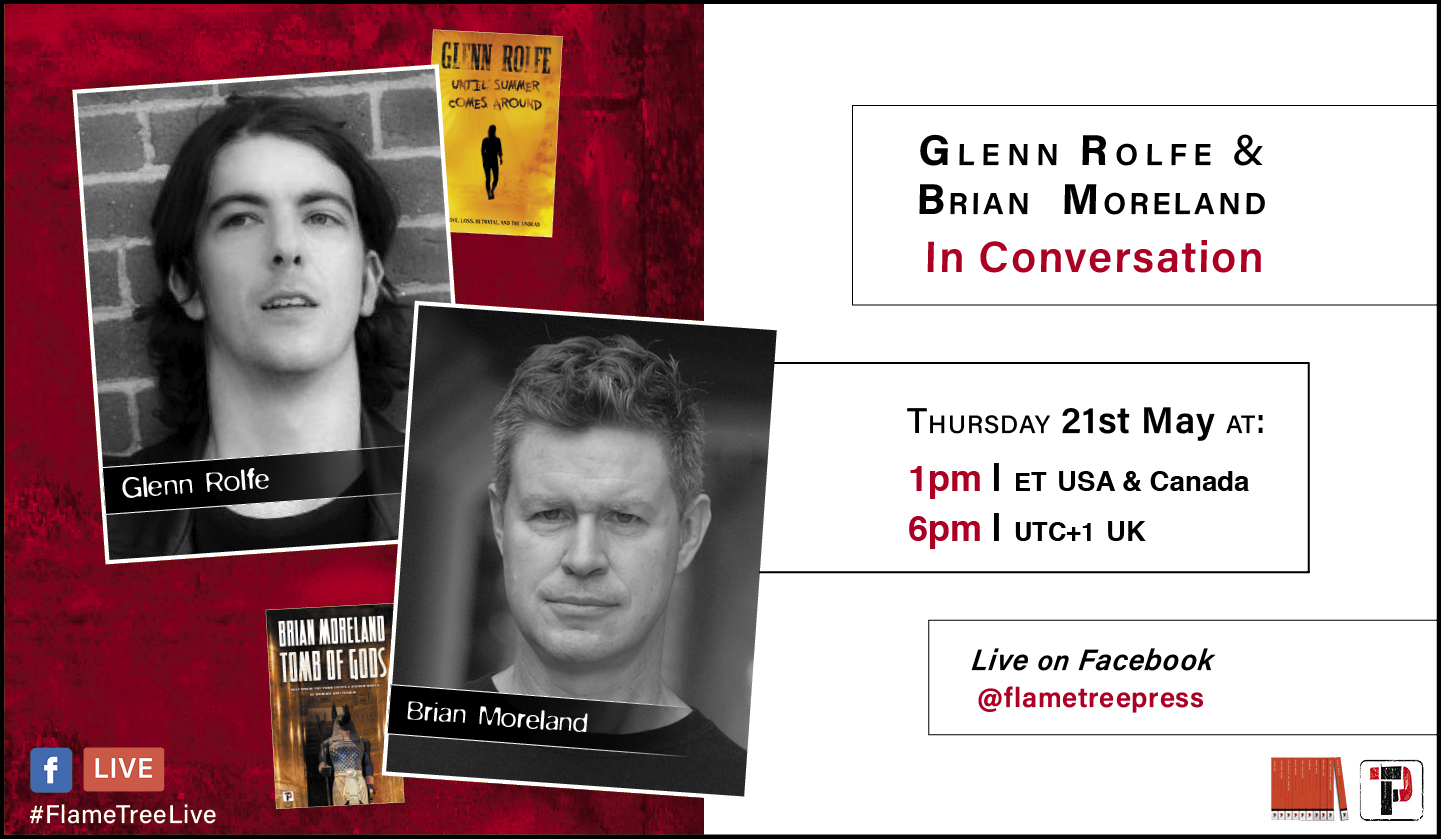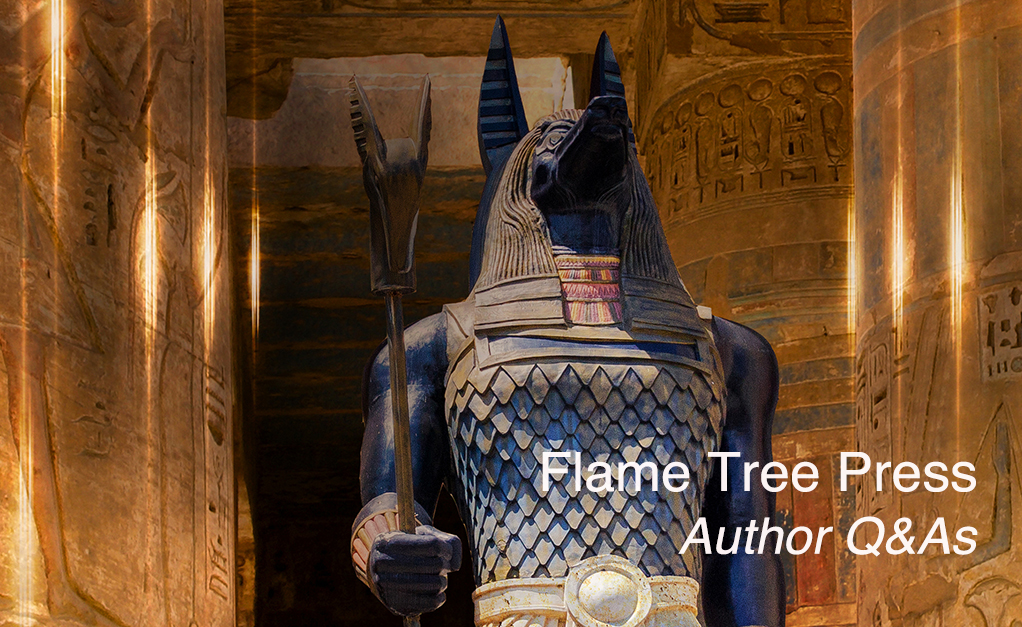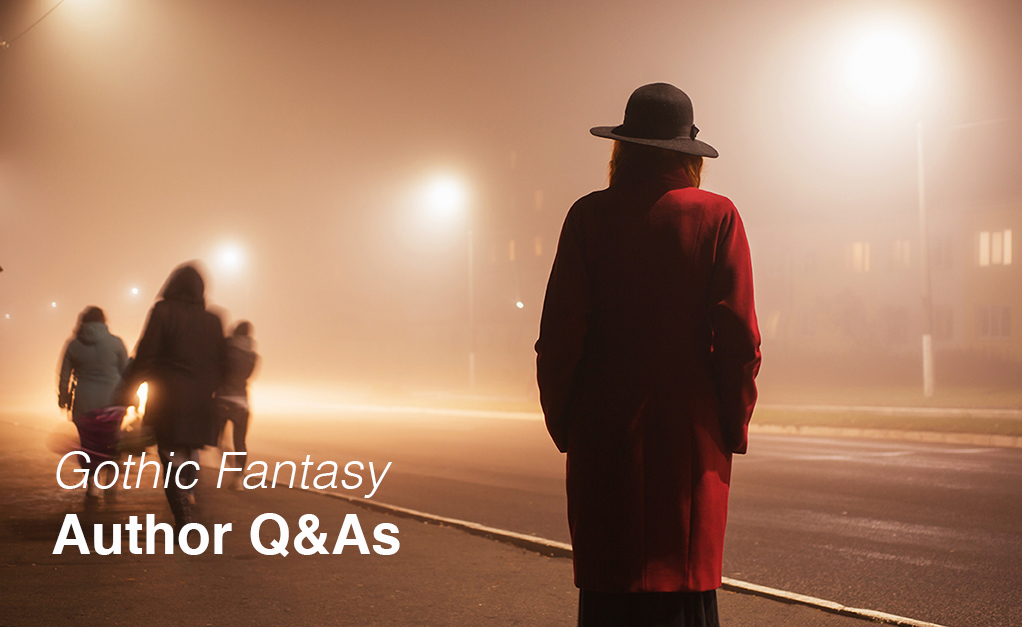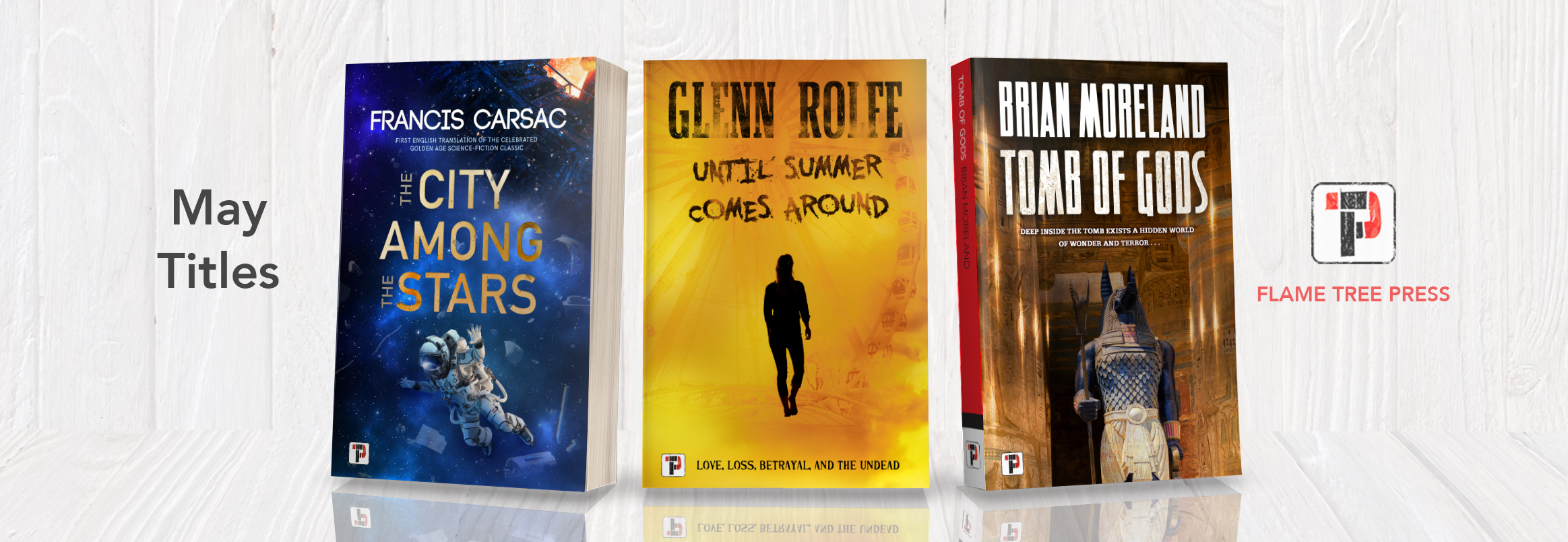
Twentieth Issue! Ill-fated Town
Welcome to the Twentieth issue of the Flame Tree Fiction NEWSLETTER! We hope you and your families are still safe and well and that you're looking forward to the self-isolation stories coming to your this month! There were a huge amount of incredible stories submitted for May's Sci-Fi and Horror flash fiction and we hope you enjoy reading our two final selections here! Once again, we wish we could choose more than two but thank you so much to all of you who took part and submitted stories! The theme's for last month were Ghost Town and Ill-fated Experiment!
This month's newsletter features:
- Original Sci-Fi Flash Fiction: The Things They Launched by Pat Stansberry
- Original Horror Flash Fiction: His Favorite Tune by Aeryn Rudel
- FLAME TREE PRESS - May Releases
Original Sci-Fi Story
The Things They Launched
Pat Stansberry
Nanga Parbat Spin Launcher Test, May 18, 2076. The launcher came apart at 14:18, Greenwich Mean Time, while at a spin rate of 2,800 RPM. One hundred seventeen 10-centimeter cubesats lost or destroyed. Cause: unknown.
Ten of the cubesats were to be part of a private blockchain network for a new cryptocurrency, the FreeFranc. An ambitious Swiss banker promised untraceable transactions between what he called “nontraditional business entities.” Days after the spin launcher failure, the nontraditional business entities used their traditional methods to deal with the ambitious Swiss banker.
Six of the cubesats were to bounce signals between them, fifty million Christian voices crammed into the ten-centimeter boxes, a ceaseless stream of my fathers and amens, an orbiting prayer wheel. The owners hoped to inspire a divine phenomenon, though exactly what they wouldn’t say.
One of the cubesats held—barely—a liter of sesame chicken from Sun Sun International Buffet, five locations in greater Albany.
One was supposed to send aloft Juanita Gil’s prizewinning rose, Succotash in Taffeta, her dying wish that the pink petals and yellow stamen describe an arc across the black sky. Instead, her husband Pablo sent the hood emblem from the 113-year-old Porsche she crashed, his 356B Cabriolet, his baby, his one true love.
Another had two women proclaiming I love you in a hundred African languages, the passionate voices of newlyweds Abeba, Ethiopian for flower, and Annakiya, Hausa for sweetface.
It was a Pakistani cubesat that killed four Delhi women, smashing through the makeshift factory where they were each rolling their thousandth onion-seed papad of the day.
One cubesat was an iridescent purple that, each time it crossed the terminator into daylight, would have glowed like a blacklight sun.
Another was red, held a thousand live red ants, not for scientific experimentation, only a testament to the perverse cruelty of boys.
Two cubesats, scheduled to be the last released, were to go higher and stay up longer than the usual ninety days. They were ostensibly for communication between sister high schools in Cleveland, Ohio, and Arles, France, but the five girls who built them—two American and three French—intended to use them for a long summer of quantum-entangled interactive gaming.
One cubesat was, the owner claimed, designed to contact Superman, but only in times of grave need.
Half of the cubesats stayed attached to the mile-long nano-filament cables. Miraculously, three sats remained intact when their cables wrapped themselves around nearby mountaintops. An unknown number of goats, capra ibex, were killed in the cataclysmic impact.
Some were magical. According to the owners.
Ten weren’t cubes at all but little flying saucers ten centimeters in diameter with tiny ion engines, part of a contest among Golden Age sci-fi fans to see who could achieve the highest orbit.
Thirteen of the cubesats had been recovered from the first spin-launcher attempt, the Everest catastrophe. They’d landed in a Siberian snowbank two thousand kilometers away. Cubesats cost so little that they were hardly worth recovering, but these were being re-launched by the animal rights group YakWatch in memory of the six yak that were killed when the Everest launcher came apart.
A Pakistani woman poured the ashes of her martyred husband, killed by unknown terrorists, into the central cavity of one cubesat. The ashes of the four other martyrs were to accompany him, but instead she flushed them down a men’s room toilet in Islamabad.
Six guys from Pittsburgh had paid for two cubesats, one to be launched from Nanga Parbat and one from Namcha Barwa in Tibet, the second in retrograde orbit. Both had steering rockets. The plan—dangerous, illegal, and thus secret—was to collide them over Pittsburgh on the 4th of July. In the words of Joe, their leader, “It would have been so fucking great.”
One of the cubesats carried a recording of Mallory Whitecloud of Cedar Rapids, Iowa, saying I love you I love you I love you over and endlessly over. The words were not looped or digitally duplicated. Over five months, she had recorded 720 hours of I-love-yous, 1,255,377 in all. A tiny speaker would have played them into the emptiness of space, where, just as was true with her ex-husband Billy, they would remain forever unheard and unanswered.
Two carried super-concentrated perfumes from Lumeness, Floral Starshine for women and KnockAbout for men. They were to be released when the sats reentered the atmosphere, scenting the Earth first with a soft blend of peonies and sunshine, then with a heady mixture like granite and football.
The only cubesat to reach space shot straight up just as the spin launcher came apart. It was a solid block of magnesium, one of ten at Nanga Parbat, ten of two thousand planned to be launched. It would have come down over Idaho at 9pm EST, July 4th, 2076, part of a national fireworks display of unprecedented scope. The errant cubesat reached an altitude of 912 kilometers, then began its long fall homeward. Anyone standing in the ruins of the Nanga Parbat launch site would have seen a dazzling white sphere, glowing and growing, until high overhead it exploded like a flowery sunburst, like a miniature star, marking the place where so many dreams—some small, some silly, some sweet—where so many dreams all came to ruin.
Pat Stansberry teaches English at Cuyahoga Community College in Cleveland, which means he gets to spend a lot of his time grading essays. Between working on proper citation and sentence fragments, he finds time to do a little writing. His plays have been performed at The Ingenuity Festival and the Eight by Eight Festival of Short Plays. His writing has appeared in Pivot Magazine, Whiskey Island Magazine, the Cleveland Plain Dealer, Strange Horizons, Potomac, and Daily Science Fiction.
Original Horror Story
His Favorite Tune
Aeryn Rudel
Colton Jackson walked along a dirt road while the man ordered to kill him pressed the barrel of a gun into his back. Dilapidated buildings rose around them, crumbling structures that spoke of instant prosperity followed by instant destitution. The town was called Mineola, and it died a hundred and twenty years ago.
"Hey, Derek, let up with that thing," Colton said, glancing over his shoulder. "I'm not running."
The pressure on Colton's spine eased. Unlike a lot of hitmen, Derek Hitchens wasn't overly cruel. “You wanna tell me why we drove all the way in the fuck out here?” Derek asked.
“This place is important to me.”
“Why? Nobody's lived here since cowboys and shit."
Derek was right, but the town had other charms. “My ancestors have history in Mineola.”
“They lived in this town?” Derek asked.
Colton shook his head. “They robbed it.”
Derek made an amused snort. “I don’t give two shits about your family history, but Mr. Falucci said you get to pick the spot. So pick.”
“There.” Colton pointed to a building in better shape than the rest. Its batwing doors marked it as the town’s saloon.
“Works for me.” Derek steered Colton toward the saloon.
Colton began cracking his knuckles and flexing his fingers, an old habit, a thing he did before he played.
Derek chuckled. “Your arthritis acting up, Colton? I got something that’ll fix that.”
Colton ignored him as they pushed through the saloon doors with a rusting shriek of ancient, unoiled hinges. Inside, the smell of dust and rot pervaded, but most of the furniture--round tables and plain wooden chairs--remained intact. The bar stood to the left, a long strip of buckled wood, and behind it a mirror so grimed with dirt and age it reflected only a dim shadow of the world.
A Chickering upright piano, remarkably intact, stood in the corner. The keys were yellowed, like the tusks of some long-dead beast, but it would play and an audience would be waiting.
“You wanna die here?” Derek said, looking around
Colton turned to Derek, and the hitman’s narrow, blade-like face crinkled in anger at the movement. His pistol was suddenly in Colton’s face.
“Wait!” Colton blurted and held up his hands. “I just want to ask you a question.”
Derek studied him with dark, deep-set eyes, eyes that held neither mercy nor compassion. “You got five seconds.”
“See that piano over there?” Colton nodded toward the old Chickering.
“Yeah, so?”
“You know what I did for Mr. Falucci before I got into trouble.”
Understanding came over Derek’s face like sunlight across a mountaintop. “You gonna play fuckin’ jazz piano on that old shit box?”
“I’d like to try. One more tune before the end.”
Derek looked at his watch. “You’re lucky Mr. Falucci liked you. You should be night-night in a hole somewhere by now.”
“He did like me.” Colton sighed and remembered standing before Falucci’s desk, something like sadness on the big mobster’s face. “Jesus, Colton, why’d you have to go and steal from me," Falucci had said. "Now I gotta find a new piano player, and there ain’t nobody as good as you.”
The reason he dared steal money from a killer and thug like Falucci was simple. Colton had a three-thousand dollar a week cocaine habit. The money he made playing piano at Falucci’s nightclub in St. Louis was good but not that good.
“One tune,” Derek said. “If the thing even fuckin’ works.”
“Thank you.” Colton cracked his knuckles again and walked to the piano. The stool was new, though he doubted Derek noticed that. Colton sat and placed his fingers on the dust-covered keys. He could feel the energy in the air, an electric buzz he felt every time he came back.
“Whatcha gonna play?” Derek asked, leaning against the bar.
“Oh! Susanna,” Colton said. “It’s a favorite of someone I know.”
"That ain't jazz," Derek said but waved his gun in a “get on without it” motion. Colton struck the first notes. They plunked hollow and thready but not off key. He let the jaunty song build, let the energy rise in the saloon. The hair stood on the back of his neck, and he heard distant voices and the sounds of glass clinking and playing cards shuffling.
Derek glanced around, his killer’s eyes narrowing. “What the fuck is that?”
Colton kept playing and dim outlines of people appeared and moved between the tables and chairs, shadows wearing clothing a century out of fashion.
“Stop playing!” Derek shouted, pointing his pistol in little darting motions at the specters sliding around the room.
Colton did not stop, even when Derek pointed his pistol at him. He did not stop because the specters had gained substance and detail, the men and women they had been now clear. A bartender in a crisp white shirt with a handlebar mustache. An elegant woman in petticoats, her hair framing her face with delicate auburn curls. A trio of rough-looking men around a poker table, one hand on their cards, one on a knife or pistol at their belts. The saloon was suddenly filled with characters from a century past.
A gunshot rang out, and Colton winced, expecting a large bleeding hole to appear somewhere on his body. Instead, he heard a heavy thud.
Colton turned and saw Derek lying face up by the bar, blood pooling under him. A stocky cowboy with coal black hair holding a smoking revolver stood over Falucci's man. The gunslinger's shadowy face might have been Colton’s, just ten years younger.
Colton walked over to Derek and squatted next to him. The hitman’s breath came in wheezing, bloody gasps, but his eyes were clear and alert. “Derek, before you die you should know Jackson is my stage name. Real last name is James. Also, I’d like you to meet my great, great, great grandfather.”
The ghostly gunman tipped his hat, and his voice came in a thready whisper. “The name's Jesse.”
Aeryn Rudel is a freelance writer from Seattle, Washington. He is the author of the Acts of War novels published by Privateer Press, and his short fiction has appeared in The Arcanist, On Spec, and Pseudopod, among others. Aeryn is a notorious dinosaur nerd, a baseball fanatic, and knows far more about swords than is healthy or socially acceptable. He occasionally offers dubious advice on the subjects of writing and rejection (mostly rejection) at www.rejectomancy.com or Twitter @Aeryn_Rudel.
Flame Tree Live Event
Watch Glenn Rolfe and Brian Moreland here in conversation, aired on May the 21st. They discuss their exciting novels which are out now and chatting about their differing writing styles.
FLAME TREE PRESS | May Releases
We have three fantastic FLAME TREE PRESS titles publishing in May. New to Flame Tree from the world-renowned French scientist, geologist, and archaeologist Francis Carsac comes The City Among the Stars which will be the first ever English translation of this celebrated Golden Age Science Fiction Classic! A brand new horror from author Glenn Rolfe called Until Summer Comes Around: it's the 1980s, romances are blossoming and the sun is shining on Old Orchard Beach...everything seems hunky-dory until locals start going missing and we find out that the ferris wheel isn't the only attraction on this sunny seaside pier in Maine. Then last but not least Brian Moreland's Tomb of Gods: in 1935, British archaeologists vanished inside an Egyptian cave. A year later, one man returned covered in mysterious scars.
You can get your copy from select online retailers or on our website here!




 Sign up for our fiction newsletter
Sign up for our fiction newsletter 